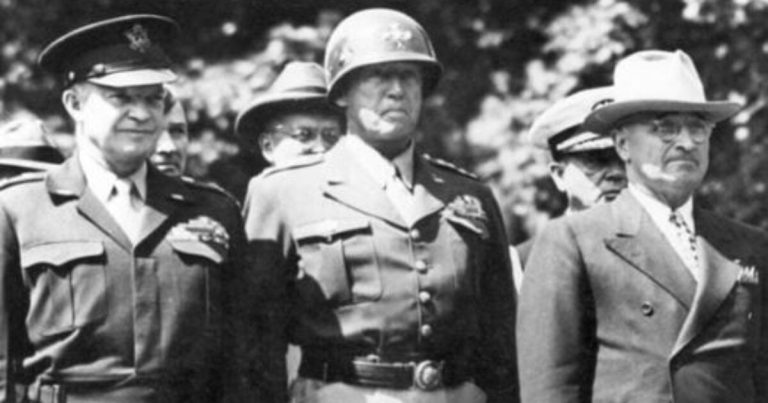At the dawn of 2024, the United States is engaged in a heated debate over what constitutes anti-Semitism. Following the October 7 Hamas terrorist attacks against targets in Israel, and subsequent military retaliations by Israel, protests in cities, universities, and in the halls of Congress ranged from peaceful to blatantly anti-Semitic. With chants, vandalism and threats of violence.
Perhaps equally troubling is that these events come at a time when recent polls show that 20% of Gen Z Americans believe the Holocaust is a myth (another 30% neither agreed nor disagreed). A previous poll found that more than 60% of the same generation did not know that 6 million Jews were killed during World War II. Such reports are disturbing and a warning to the American people about the shortcomings of remembering a pivotal event of the twentieth century.y a century.
Fears that Americans would forget or become skeptical about the Holocaust were first addressed by the man who led the Allied armies to victory in World War II: Dwight Eisenhower. Ike was a Midwesterner by birth, made the military his career, and was unspoiled in his early twentiesyAnti-Semitism in the twentieth century was prevalent in the halls of power.
Unlike many of his fellow officers, he did not view Jews, whether immigrants or native-born, as fundamentally anti-American. Nor did his Protestantism include religious anti-Semitism. In fact, he had many Jewish friends, was shocked by Kristallnacht, and immediately prepared to be appointed Supreme Commander of the Allied Forces to end the Nazi threat.
In April 1945, Eisenhower came face to face with the Holocaust. While visiting a former salt mine turned into a warehouse for materials looted by the Germans, Ike learned of a nearby camp that his men had liberated a few days earlier. Jens joined him. Omar Bradley, George Patton, and Ike arrived at Ohrdruf, a subcamp of the nearby Buchenwald network. Refusing to leave for several hours, Ike met with former prisoners, toured each building, and sat in “Hell Camp.”
Although he was aware of the Nazi gulag system, Eisenhower was shocked after seeing it in person and realized what this system actually was. He realized that this was what his men were fighting against, and that liberation was more than just the liberation of lands – it was about the survival of civilization itself against a barbarism that few believed existed in the heart of modern Europe.
In the wake of Eisenhower's visit, and the subsequent discovery of other camps much larger and more lethal than Ohrdruf, Eisenhower issued a series of orders. The camps were to be documented, photographed and videotaped. Survivors were to be cared for and interviewed. He also instructed all troops under his command to visit the liberated camps as they moved to the front and ordered German civilians from nearby communities to help bury the dead, care for the living, and find out what had been done in their name.
But Ike did more than that.
He also invited and facilitated delegations including members of the British Congress and Parliament, newspaper editors and other public opinion and civic leaders to see the camps in person. Eisenhower wanted to show the world that the camps were not a propaganda gimmick but a very real evil. He repeatedly said that such eyewitness accounts were necessary to ensure that no one in the future could claim that such atrocities did not occur. He predicted the same conditions we face now.
Eisenhower's call to bear witness and never forget the Holocaust is a reminder of the importance of historical knowledge and historical perspective. To say that the world today is more complex than it was under Ike, whether as a general or as president, is ahistorical. While there are political points that sometimes require controversial debate, there are events and movements that should only be viewed as sinister. Trying to reject anti-Semitism jeopardizes not only civility, but our common humanity. Ike wants us to remember that, too.
This article was originally published by RealClearPolitics and made available via RealClearWire.

